#keita goto
Photo
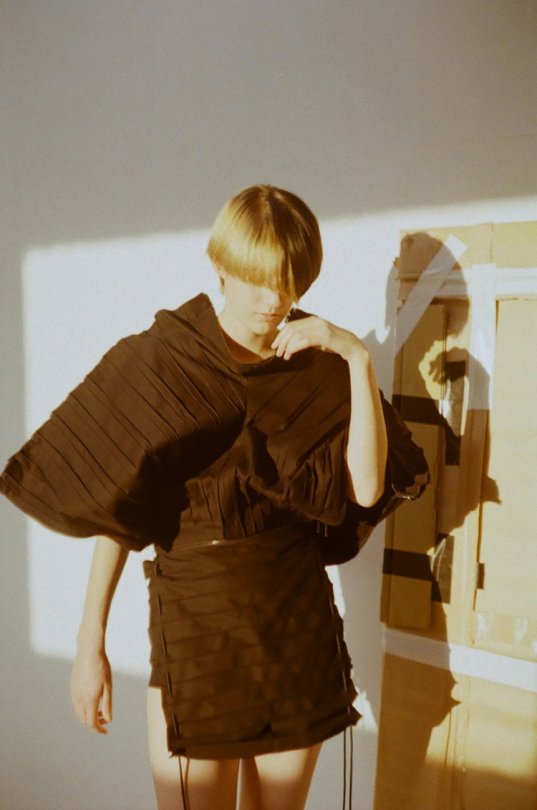
photographed by keita goto for whitelies magazine.
4 notes
·
View notes
Text






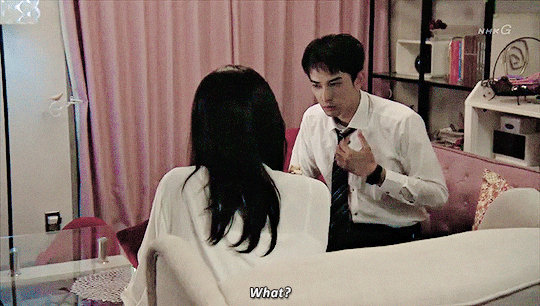
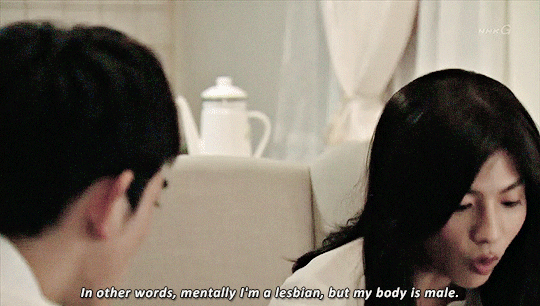


In other words, mentally I'm a lesbian, but my body is male.
JOSHI TEKI SEIKATSU (2018) | 1.01
#shison jun#machida keita#joshi teki seikatsu#life as a girl#女子的生活#joshi-teki seikatsu#jdramasource#jdramaedit#*#clairedgifs#jdrama#asiandramasource#mine#userstorge#lgbtq characters#lgbtqia#lgbtq#goto my lovely himbo#miki was so funny explaining it all to goto#she's shaking her head internally i feel it through my screen
220 notes
·
View notes
Text
Random Voltage Headcanon #20
MC: We are invited to an event this weekend.
LI: Fantastic.
MC: We are going to skip it, aren't we?
LI: Of course, we are.
LI – Hideki Ishigami, Hyogo Kaga, Seiji Goto, Ayumu Shinonome, Yukihisa Maki, Toshiaki Kijima, Rei Kamiki, Toma Kiriya, Keita Mitsuura, Natsume Asaoka, Daimon Togo, Kuranosuke Kiba, Eiji Takao, Shu Hasunuma, Toshiki Kasumi, Munechika Takado, Taro Akuchi, Suzumu Mado
#her love in the force#irresistible mistakes#oops i said yes#romance md: always on call#tokyo love hustle#hideki ishigami#hyogo kaga#seiji goto#ayumu shinonome#yukihisa maki#toshiaki kijima#rei kamiki#toma kiriya#keita mitsuura#natsume asaoka#daimon togo#kuranosuke kiba#eiji takao#shu hasunuma#toshiki kasumi#munechika takado#taro akuchi#suzumu mado#voltage inc#random headcanon
32 notes
·
View notes
Text

Nana Komatsu in Trabzon, Türkiye ph. keita goto
6 notes
·
View notes
Text
(TW/CW: violence against trans individuals)
TL;DR: The 2018 NHK dorama Life as a Girl totally moved me. I did not expect to be so moved and thrown by this short series about a transgender woman in Kobe. If you’re into rabbitholes involving either Shison Jun or Machida Keita, this is a MUST WATCH. LONG POST!
I wrote last week that in my Machida Keita rabbithole, I discovered through the Tumblr algorithm a 2018 drama that he co-starred in called Life as a Girl, playing the bumbling roommate of a transgender woman named Ogawa Miki (played by an unbelievable Shison Jun).
Like I wrote previously, I’m deeply impressed that NHK produced this show -- NHK has these edgy tendencies that they don’t let run REALLY deep, like TV Tokyo does with its late-night programming. But I think that NHK leverages its huge influence over Japanese television by delicately introducing topics of mental and physical health and acceptance through short bursts of creative dorama content, and getting just unbelievable actors to carry the topics through (doramas that come to mind include To Heal Wounds of the Heart, with the AMAZING Emoto Tasuku as a psychiatrist who treats clients after the 1995 Kobe earthquake; and Hoshi to Lemon no Heya, which focuses on hikikomori culture, and stars Kaho and Miyazawa Hio, who both just ate their roles).
Life as a Girl establishes at the start that Miki has been living a confident life as a woman for a few years by the time we meet her. She is working in fashion, in a workplace that totally accepts her, and her immediate community -- her croquette vendors, the aquarium she visits after work -- all love and care for her.
But Goto (Machida), a high school classmate looking for Ogawa Mikio, Miki’s previous identity, bumbles into her life after falling into debt and needing a place to live. The risks are obviously high for Miki -- she has no way of knowing how Goto will take and understand her transition since the school days, and even after she welcomes him into her home, he takes a few minutes to realize that Mikio has become Miki, and IS Miki, through and through.
The show focuses on a few immediate themes, with more cropping up later on:
1) That while Miki is confident on the outside, she is insecure and shaky about her immediate existence and future as a lesbian, particularly as she as not had any surgery at the moment we meet her
2) That with Goto in her life as her roommate, that she will have to experience cishet male culture again, and she notes how this affects her and her behavior
3) That Goto’s presence means that people from her past life as a boy/man will learn about the transition and have their own reactions (which episode two focuses on)
4) That Goto’s presence also makes her realize and reflect on her family’s acceptance, or lack thereof, of her identity
5) That her attraction to women forces her to confront that no matter what, even as a woman herself, she will not find the assumed societal stability that a non-lesbian in Japan would find in marriage with a man
6) That if she gets into a relationship with a het woman, that that het woman may end up leaving her to go into marriage in the end, which (spoilers) ends up happening with a woman that Miki dates in the short series
7) And finally, while this is not OVERTLY stated, it is somewhat implied in episode three, when Miki is briefly attacked by her cishet older brother, that transgender individuals are more at risk for attacks and homicides than cishet individuals.
Before I go on with my analysis of the show, I want to say that my first introduction to a viewpoint into transgender identities in Japan was through the 1993 translation of Banana Yoshimoto’s novel, “Kitchen,” first written in 1988. I didn’t read it until I was much older, already a teenager, so that was the late 1990s/early 2000s (yes, I am old, so old), in which the mother of one of the lead characters was previously his father, and this mother is murdered in a transgender club.
The way in which transgender identities are treated in “Kitchen” are somewhat reminiscent of how I felt gay identities and culture were treated in the drama version of KinnPorsche by Kinn’s father, Korn, in that -- no huge deal was made about the decision that the co-lead character’s mother made to become a woman. The main character of the novel -- a young woman who has lost her entire family -- regards the mother as the most beautiful woman she had ever seen. And the culture in which the lead character is introduced to is treated quietly, with no reactions recorded at all, and acceptance being a given. It is simply accepted as a way of life in big cities in Japan, one way of life of millions being lived in the city everyday. And most importantly, the transgender individuals are only initially regarded as such -- and by the time their stories are fully told, they are family figures, and never outed again as “transgender” by the author.
While “Kitchen,” I think, began to establish a line of acceptance for transgender identities and culture in Japanese art (and I am obviously missing plenty of works that certainly cropped up between 1988 and 2018), Life as a Girl allows us to dive specifically into the focus of a transgender woman ACTIVELY living the life that she has chosen, with her small chosen family around her. Miki keeps a blog, and her internal communication to herself is often peppered with pop-up hashtags of what she’s witnessing and summarizing about the world around her. We see the hashtags, many times in rapid-fire fashion, as she analyzes what’s happening around her and as she reads the people around her.
And she’s a master at reading people. When Goto literally bumbles into her life in episode one, Miki knows that it’s just a matter of time before Goto catches on that Miki was Mikio -- and he catches on, and is startled. But Miki’s coolness, her acceptance of Goto’s confusion, her watching him through his process -- she already knows almost all of what Goto will go through to realize that his schoolmate is no longer a man.
What catches and turns Miki, though, about Goto throughout the series, is that Goto only exists on a sincere level (he’s bumbling and foolish and kind of dopey, and VERY cishet -- but he’s deeply caring, and shows it). Slowly over the course of the four episodes, Goto sees the discrimination that Miki faces, and begins to develop a defense of how Miki lives her life -- which we see coming in full circle in the last episode of the series, when Miki is heavily discriminated against by a rich cishet male, and Goto stands up to him loudly and firmly. Miki runs away at that moment -- her coolness can’t tolerate the sheer sincerity of Goto’s loud defense and emotion in defending his friend and her decisions.
We also see it in episode three, where by chance, Miki is sent to her hometown for a work assignment. While waiting for the train back to Kobe, Goto appears on the platform. Miki is in wonder -- why would Goto, of all people, be here? And Goto implicitly indicates -- it’s because he needed to be here for his friend, who may encounter unpleasantries while in her hometown. (More on this scenario in a moment.)
The way in which we learn a lot about Miki and her ability to survive the world around her is through the ways in which she attends goukon, or group blind dates, of which there are a number throughout the series. Not everyone at the goukons knows that Miki is transgender. But, Miki sets her sights and targets on the women in the group, automatically turning the tables on the socially implied nature of the setting that girls get with guys and vice versa. It’s at a goukon where Miki meets her girlfriend of the series, a young woman with a boyfriend in her country hometown, who is assumed to be with Miki in part because Miki has not transitioned surgically yet.
At these goukons, Miki is fully engaged in her coolness about the people around her -- how they’ll behave, how simple cishet men are, how the women she’s attracted to will react when they are approached by Miki.
But what I love about this show is that the foil from the goukons to her co-living existence with Goto forces Miki to face a deeper level of emotion about herself and what it means to be transgender in Japan. Goto’s quiet transformation to a devoted and ACCEPTING friend surprises Miki, and clearly surprises her throughout the show. It’s such a lovely, revealing reflection against the many, many, many defense mechanisms Miki has had to put up in order to survive.
The other best example of Miki’s coolness colliding with sincerity from others was in episode two, when the bumbling Goto mistakenly invites another high school classmate (Mini-san) to visit Kobe and stay with them. Mini-san’s real intention to come to Kobe was not to relieve his depression, as he told Goto -- it was to find out if Miki, previously Mikio, was a monster (and the subs literally translate this concept as “monster”).
Miki knows what’s up. She already knows the discrimination that she’ll face from Mini-san. And she lets it go through its process, all while Goto is taken aback at Mini-san’s disgusting behavior. Finally, Miki makes her cutting diagnosis of the situation: she reveals that Mini-san is actually interested in cross-dressing, and aids him through his experimentations. This throws Goto -- and demonstrates to Goto that Miki’s warm heart is one that needs investing in.
Finally, the show deals with family acceptance. When Goto appeared on the train platform to accompany Miki home after her first visit to their hometown, I was deeply moved -- and that was before the appearance of Miki’s father and older brother, an older brother who was shown in flashbacks to have tormented the former Mikio as a young man for cross-dressing.
I have to make a long post longer by processing the family scenes, because I thought it was deeply interesting in how Goto served as a go-between for Miki and her father, to help bring her father to a place of acceptance for Miki’s life. The father is initially presented as being surprised to see his former son as a woman, obviously, and the conversation is light at best -- but it’s clear that Miki’s father is relieved to see Miki healthy.
And Goto, in talking about Miki and their arrangement as roommates (which confuses the hell out of a lot of people, and I wish Goto had just used the word “roommates,” lord, but bumbly Goto didn’t ever do that), misgendered Miki’s pronouns to her father to talk about Miki.
So as a progressive -- of course that made me wince. But as an Asian, with Asian parents -- I see why the writers had Goto do this. There is no way in living hell that my own parents could ever understand the culture around using correct pronouns. Their concept of reality is only focused on their understanding of their world around them. If a boy was born as a boy, that boy will always be a boy. My parents don’t have the cultural insight, leverage, or conceptual fortitude to understand anything else -- both in their refusal to understand different concepts, but also in the ways in which they’ve lived their simple lives over their lifetimes.
I believe the writers of the show had Goto click into that mindset. Goto was really Miki’s go-between at that moment -- a translator of sorts, from a cishet male to a cishet male, with Goto serving as the image of someone who had worked on gaining understanding and acceptance for who Miki was and how she lived her life.
That demonstration, in front of a family member who could have very well rejected Miki, was AMAZING to watch. And the appearance of Miki’s older brother, who bolted in with his discrimination in the process, judging Miki, attacking her, and railing on her appearance, was also a necessary foil to the moment. Goto stands up to the brother, and Miki also fights back, voraciously and vocally, stating with confidence -- I am a woman, I love fashion, and I have chosen the life I want to lead.
And Miki’s father accepts it. At the end of the scene, he stands and accepts his daughter, calling her Miki. It was VERY reminiscent of the incredible scenes of acceptance at the end of the movie “His,” with Miyazawa Hio and Fujiwara Kisetsu, when older members of their small town vocally demonstrate their acceptance of a gay couple in their town.
I think the show ended on a touch of a wiggly note, showing Miki continuing to live her life in kind of a more fun way than we had previously seen, and I think the show certainly could have gone down a more sickly-sweet sentimental route, considering this was on nationally broadcast Japanese television. But that’s a minor quibble. We need to see more transgender actors in roles, but I don’t think they could have cast this better. Shison Jun was absolutely SPECTACULAR as Miki, and he’s my new rabbithole; while Machida Keita ate his role as Goto, and for me, played the first cishet role I’ve been truly happy to see him in. He was cast and USED perfectly to set up how hilarious many cishet male behaviors are, and demonstrated a lot of what Miki left behind, culturally, when she became a woman.
WHEW. This show tore me apart. I’m keeping it close, and not only for the Machida rabbithole (which, lord help me, will jack back up when I get the Cherry Magic DVD in mere days). Life as a Girl is a MUST WATCH, and I am definitely going to rabbithole more into transgender-focused content from Japan in the coming months.
25 notes
·
View notes
Text


【開催中展示のお知らせ】
本岡景太 | Keita Motooka
「貼る点の遥か」
2024.7.12 fri. - 7.27 sat.
@motonini3768
彫刻家 本岡景太による展示を文ヶ学にて開催いたします。
本岡景太氏は独自の技法である “歪曲張り子(わいきょくはりこ)” を用い表現する彫刻家です。
主な素材である紙を使い、感覚的な対話を通じて風景や事象を彫刻に表現します。彼の作品は彫刻でありながらも絵画的な側面を持ち、その歪みから生まれる不穏な雰囲気が鑑賞者を未知の世界へと誘います。 「貼る点の遥か」と題された本展は、作品に打たれた点と空間、時間、距離といった要素の関係性について、作家の探究心が垣間見える展示となります。 今最も注目の彫刻作家、本岡景太氏の新作をぜひご覧ください。
ー
本岡景太 1999 広島県出身
2022 武蔵野美術大学造形学部彫刻学科 卒業
2022 東京藝術大学美術研究科彫刻専攻修士課程 入学
紙と酢酸ビニル系樹脂による「歪曲張り子」という独自の技法で作品を制作している。 制作のルールは、極限まで造形のためのものであった方が良いと感じている。 僕らが抱える目的のために、彫刻が立つならば、世界はなんて寂しいものになるだろうか。 造形の世界は、僕らが生きる世界よりもずっと大きく広がっている。
ー
【詳細】 展示名:貼る点の遥か 作家名:本岡景太 会場:文ヶ学 期間:2024年7月12日(金)~2024年7月27日(土) 開廊時間:13時~18時 休廊日:会期中無休 入場料:1drink ※高校生以下無料 (併設のティースタンドにてご注文をお願いいたします。)
design by Daiki Goto
0 notes
Text



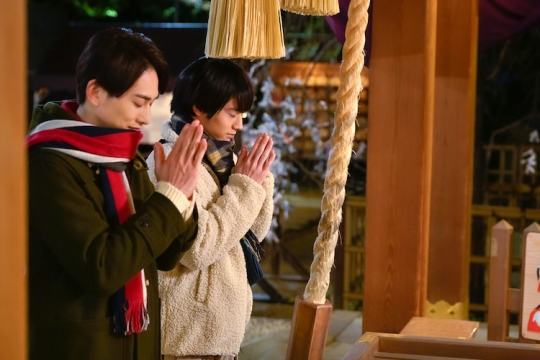
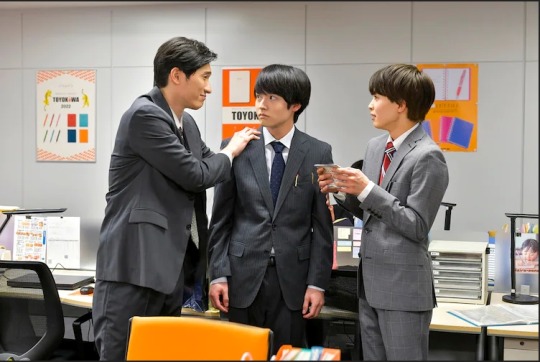
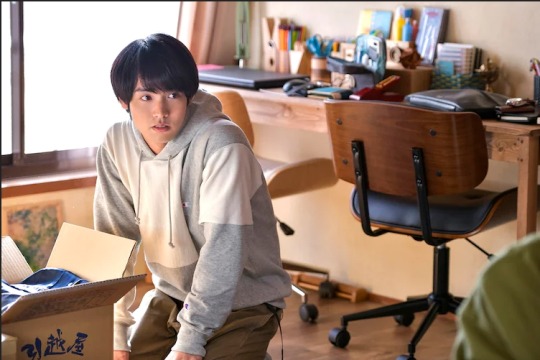
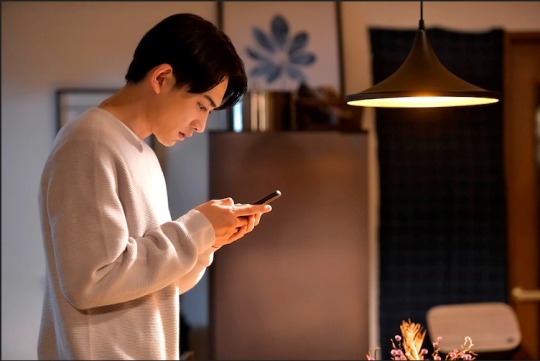

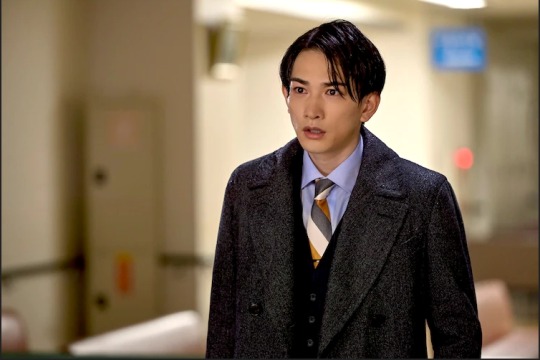
#cherry magic#eiji akaso#keita machida#Kusakawa Takuya#Tanaka Suzunosuke#Goto Yutaro#Asaka Kodai#movie
223 notes
·
View notes
Photo

FIRST POSTER! (link to original tweet in comments)
Link to poster/tweet captions translation in the comments as well!
#cherry magic#cherry magic! thirty years of virginity can make you a wizard?!#machida keita#akaso eiji#goto yutaro#asaka kodai#BRB CRYING
47 notes
·
View notes
Photo








#Cherry Magic#30sai made Dotei dato Mahotsukai ni Narerurashii#jdrama#jdramaedit#Akaso Eiji#Machida Keita#Asaka Kodai#Goto Yutaro#m: cm#ep6#all#m:gifs
325 notes
·
View notes
Photo










CHERRY MAGIC | Episode 3
There is a special magic with Japanese BL’s. It is amazing how each country takes a different approach to the genre of Boys Love, for which I am thankful. I would summarize most Japanese BL’s are ‘soft and serendipitous’ mainly with a happy ending. ‘
Full Episode List
#jDrama#Cherry Magic#Japan BL#BL Drama#Boys Love#Japan#Drama#LGBTQ+#Gay Characters#Akaso Eiji#Machida Keita#Asaka Kodai#Kusakawa Takuya#Goto Yutaro#CHM EP GIF
654 notes
·
View notes
Text
Cherry Magic is getting a movie next year.
Let me scream.
CHERRY MAGIC IS GETTING A MOVIE NEXT YEAR.

#cherry magic#i miss our gays so muchhh#kurosawa yuichi#keita machida#adachi kiyoshi#eiji akaso#jdrama#movies#cherry magic movie#tsuge masato#asaka kodai#minato wataya#goto yutaro#rokkaku yuta#kusakawa takuya#nozomi fujisaki#ryo sato#kengo urabe#suzunosuke#cherry magic the movie#utsuutalks
33 notes
·
View notes
Text
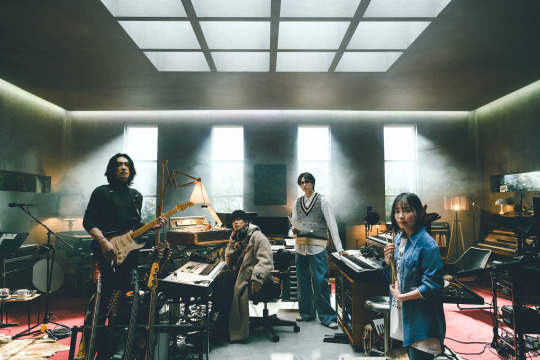
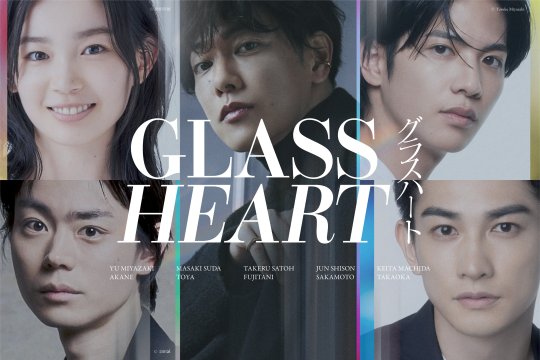
Glass Heart, based on Wakagi Mio’s best-selling light novel, is coming to Netflix in 2025. Executively co-produced and starring Takeru Satoh, Glass Heart also stars Yu Miyazaki, Keita Machida, Jun Shison, and Masaki Suda. The drama is directed by Kakimoto Kensaku and will distributed worldwide on Netflix in 2025.
Plot
Akane Saijo, a college student and aspiring drummer finds herself suddenly kicked out of her band for arbitrary reasons. Things take a turn when Naoki Fujitani, a musical prodigy known as "Amadeus of Rock", stumbles upon her talent and invites her to join his newly formed band "Ten Blank".
Characters
Satoh Takeru as Naoki Fujitani, the leader, vocalist and bassist of Ten Blank
Miyazaki Yu as Akane Saijo, the determined drummer of Ten Blank
Machida Keita as Takashi Takaoka, the diligent guitarist of Ten Blank
Shison Jun as Kazushi Sakamoto, the introspective keyboardist and music geek of Ten Blank
Suda Masaki as Kiriya Masaki, the charismatic vocalist of the rival band to Ten Blank
Renowned directors Kensaku Kakimoto (Parasite in Love) and Kotaro Goto (The Naked Director) are at the helm of the series. Mari Okada, the acclaimed scriptwriter behind popular titles such as Anohana: The Flower We Saw That Day and The Anthem of the Heart, takes charge of writing the story alongside a talented team of emerging female scriptwriters.
Glass Heart sets a new benchmark in Japanese drama with its massive filming scale, including scenes featuring tens of thousands of extras for music performances. The actors also went through intensive training to master their instruments so they can play authentically. Prepare to be swept off your feet by the passion, music, and drama when Glass Heart premieres in 2025.
Read more at Netflix Press Release
------------------------------
Netflix Series 'Glass Heart'
Cast: Takeru Satoh, Yu Miyazaki, Keita Machida, Jun Shison, Masaki Suda
Based on the novel: 'Glass Heart' by Mio Wakagi
Directors: Kensaku Kakimoto, Kotaro Goto
Screenplay: Mari Okada, Tomoko Akutsu, Shiho Kosaka, Anna Kawahara
Co-executive Producer: Takeru Satoh
Producer: Go Abe
Line Producer: Hirofumi Sakurai
Production: ROBOT
Produced by: Netflix
#glass heart#takeru satoh#yu miyazaki#keita machida#shison jun#suda masaki#netflix japan#netflix#jdramasource#lextag#machida keita
75 notes
·
View notes
Text
A summary to the family relationships in Voltage Inc stories
I once posted about how the MCs from Voltage Inc are mostly mentally healthy girls from complete families, with both parents being more than adequate and usually with siblings. The statistics for the games I am writing for are like this:
Her Love in the Force: Two alive parents that are good at parenting and an alive sibling good at "siblinging"
Irresistible Mistakes: Two alive parents that are good at parenting and an alive sibling that briefly mentioned
Oops! I Said Yes?!: Two alive parents that are adequate at parenting
Plust: Love U So True: Two alive parents that seem to be good at parenting
Romance MD: Always on Call: ... She is the one whose family status can be compared to the LIs
Tokyo Love Hustle: I don't remember, but I'm not sure both her parents are alive
So, out of 7 MCs, only one and a half (if anyone remembers TLH's MC's backstory, tell me what's up with her) have a tragic backstory regarding their families, which makes up around 80% of MCs with no family trauma. If we take more MCs, then it probably is 85%. Now, let's see how we are with the boys. (I don't remember or know all their stories, so correct me if I wrote something wrong).
Alive parents with alive siblings (if they have any): Seiji Goto, Toshiaki Kijima, Toma Kiriya, Natsume Asaoka, Kuranosuke Kiba, Shu Hasunuma, Munechika Takado
Alive parents with dead siblings: Shusuke Soma
Alive parents with dead siblings and questionable love for them: Eiji Takao, Tetsuya Hosho, Sentaro Kyogoku
Alive parents with questionable love for their children: Yukihisa Maki, Shunichiro Tachibana, Ukyo Senkawa, Kunihiro Kasai, Sui Claude Saigu, Mikoto Amamitsu, Kaede Ekuni
Another fatherless child with his dad away: Hyogo Kaga (he can fall in the previous category too), Taku Hayama
Adopted orphan: Ayumu Shinonome, Rei Kamiki, Keita Mitsuura, Go Okubo, Daimon Togo, Toshiki Kasumi, Suzumu Mado
Adopted orphan with dead siblings: Takaomi Tsugaru
Adopted orphan with dead siblings and questionable relationship with the parents whose at least one adopted parent died: Hideki Ishigami
Not adopted orphan: Jun Araki, Taro Akuchi
Characters about whom I don't remember/know anything (please, tell me in the comments what's up with them): Jin Namba, Toru Kurosawa, Eiichi Matsunaga
Status unknown (please, tell me if you know anything): Ryoga Buto
So, here we have 35 characters. The ones about whom I don't know anything don't fall into the first category, from what I remember. And even if we put the last one in the first category, we still have a rate of 23% with no family trauma. By games, it looks like this:
Her Love in the Force: No trauma = 12,5% (1/8)
Irresistible Mistakes: No trauma = 30% (3/10)
Oops! I Said Yes?!: No trauma = 33,3% (2/6)
Plust: Loving U So True: No trauma = 66,6% (2/3)
Romance MD: Always on Call: No trauma = 16,6% (1/6)
Tokyo Love Hustle: No trauma = 0% (0/2)
Besides the fact that we don't have information about Ryoga yet, these are still not accurate because Kuranosuke theoretically falls into the "No family trauma" category, even if this man has trauma regarding his family and his entire personality can be explained by his family's behavior towards him.
Even the story with the "happiest" families (Plust with 66,6%) isn't close to MCs' 80%.
I want MCs with traumas who went through something and overcame it. And if Voltage Inc likes to make it hard from the beginning, using their families, then there it be. I don't want men characters who went through hell and back to come to MC so that she could fix them. I want MC to have her struggles that don't involve her man. Women's lives don't revolve around their men. They can have struggles outside their relationship.
Don't get me wrong, I understand that it is important to support your partner and everything. I like how the LIs have character development. But if you look at these games, MCs' lives seem so good and careless before meeting their SO. Their problems begin after men appear in their lives. They go through problems that aren't as serious as their partners, while the men save the day and are named heroes.
The family thing is only ONE aspect of the traumas that Voltage gives to MEN in their stories. There are so many struggles that a woman can go through: toxic exes, physically present but morally absent parents (especially fathers), high expectations, double standards, and sexual harassment.
I have had a pretty normal life compared to Voltage Inc men's. But I still can't identify myself with the MCs in here. I'm only 21, and I have seen more sh*t than the MC from "Her Love in the Force" when she entered the Academy. It makes me uncomfortable when I play for a plant from a greenhouse whose strongest personality trait at 23+ is naivety.
I want to live in a world with parents that love me nonetheless, there's no depression, sexual harassment, toxic relationships, messy breakups, divorces, bad relationships with siblings, mental illnesses, double standards, or high expectations. But it's not possible right now, and I want to see problems depicted in fiction to know that I am not alone.
I want to see a LI who goes out of his way to help MC with her problems, at least sometimes. I don't live on this earth to save men from themselves. I also want to have support to overcome my problems.
#her love in the force#irresistible mistakes#oops i said yes#plust loving u so true#plust#romance md: always on call#romance md#tokyo love hustle#voltage inc
65 notes
·
View notes
Text
From Cheri Maho online press conference. Akaso's flustered expression must've been a sight to see so he kept on being teased by Machida 😅


So, does it mean one day Akaso-kun came to the filming location with a grain of rice on his face and that inspired the director to use it on the scene? And then Machida ad-libbed the wink, so this whole scene was created thanks to these two?? 🤔😆


One of their 1st interviews together...I wish we can see BTS of their 'signals' rehearsal!
Some snippet of interview from another translator below :
youtube
and the reason why they were chosen for the roles from Producer Honma :

Totally agree with his comment "Akaso acting without self-consciousness" ! despite his ikemen image, he really went all out when he had to show ugly funny faces 😂 and yeaa Machida's eyes' acting and natural gestures are ✨
Disclaimer: these are only tidbits of some old interviews translated by @motivateanger on twt that I found to be too interesting to forget. Links to full translations and orig articles on notes.
#Youtube#dont forget to say thanks to the TL on twt#this might be redundant post but im on CM withdrawal symptom so yeah#cherry magic#kurosawa yuichi#adachi kiyoshi#kurodachi#adachi x kurosawa#kurosawa x adachi#goto yutaro#asaka kodai#machida keita#akaso eiji#keita machida#eiji akaso#jdrama#チェリまほ#30歳まで童貞だと魔法使いになれるらしい#japanese actors#cherry magic interview
194 notes
·
View notes
Photo

I cannot, Yutaro is so tiny!
#machida keita#eiji akaso#Kodai Asaka#Yutaro Goto#cherry magic#cherry magic! thirty years of virginity can make you a wizard?!#cast#HOW IS YUTARO SO CUTE I can't breathe
118 notes
·
View notes